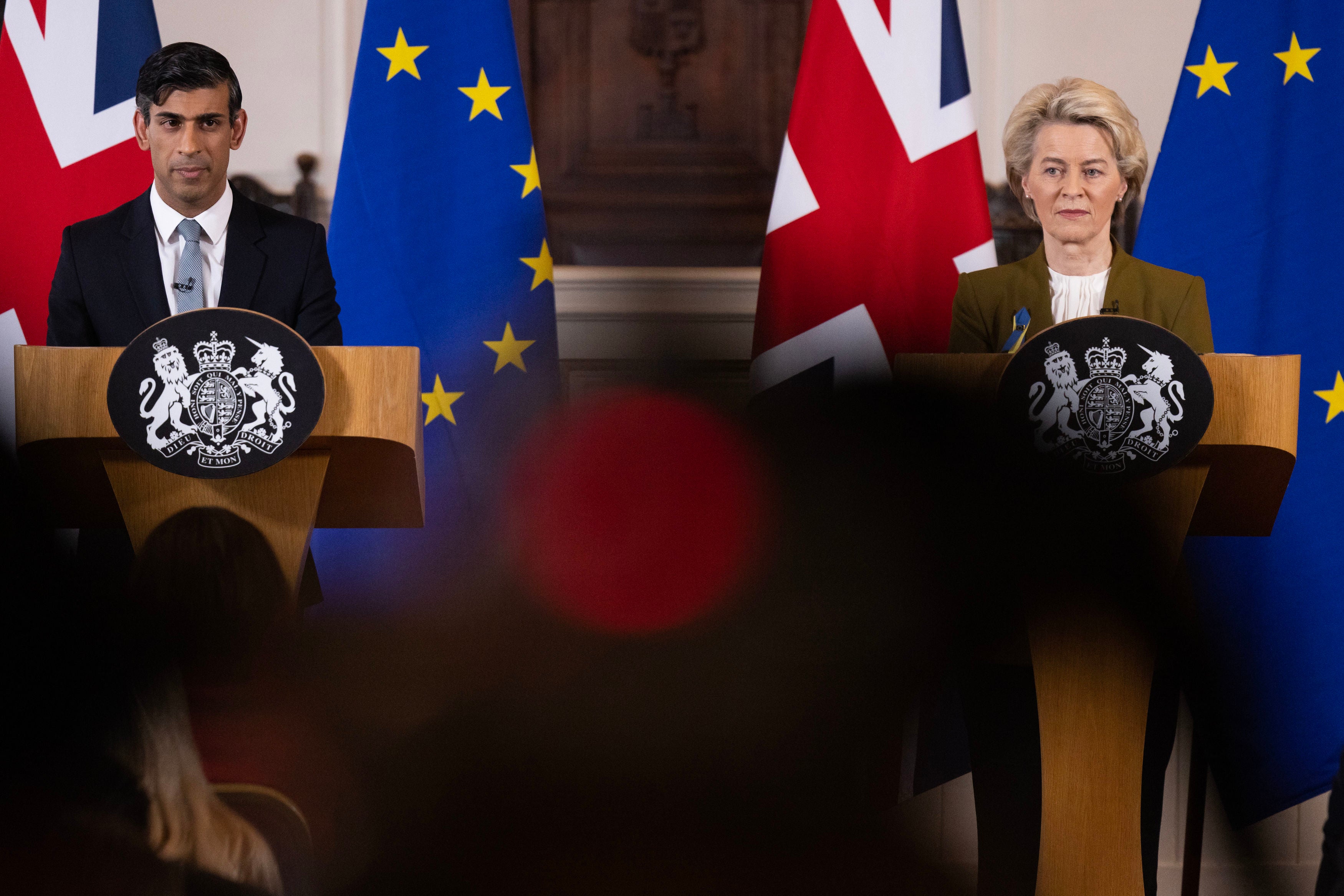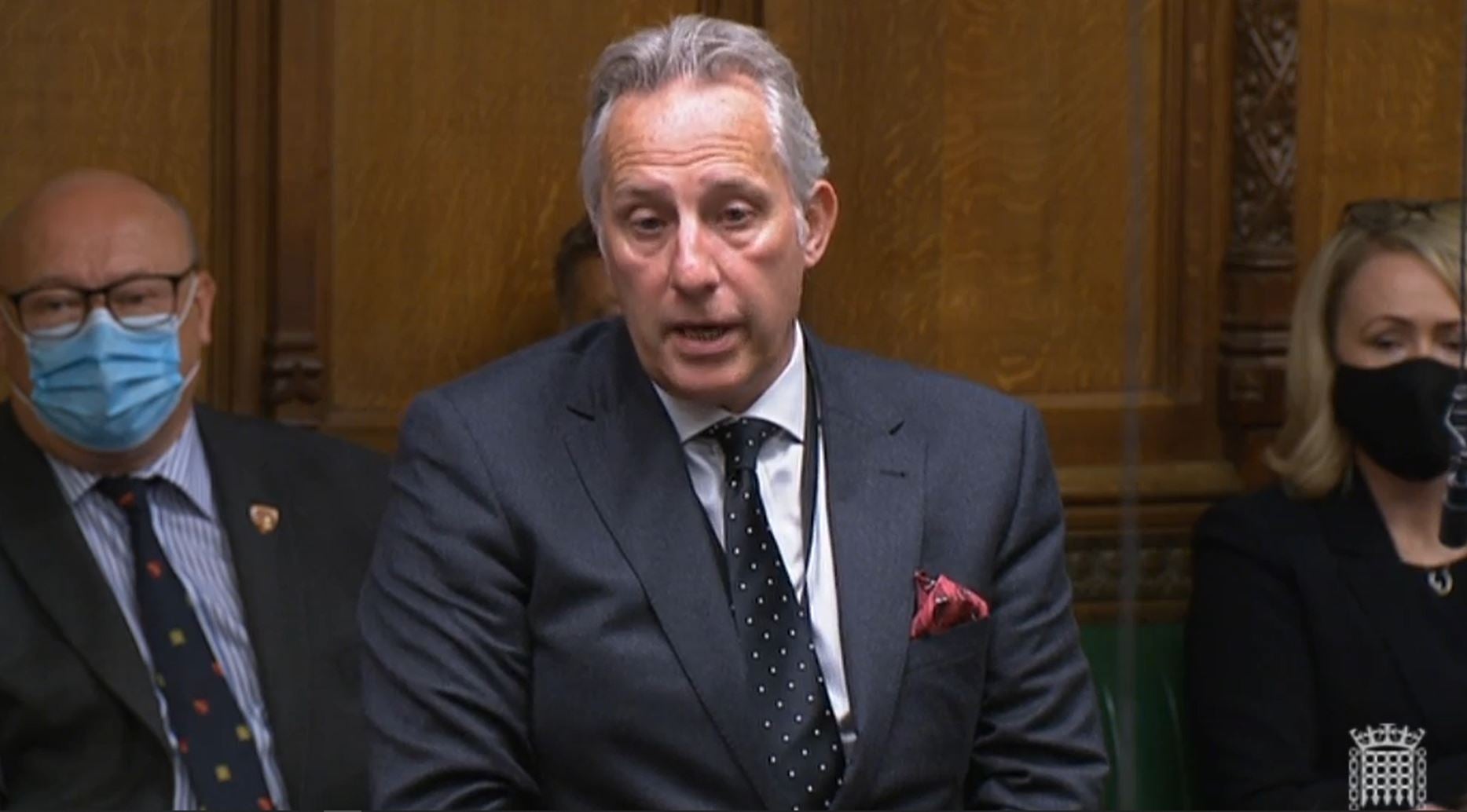Explained: What is the Stormont brake?
EU and UK hail ‘new chapter’ in relations as new Brexit deal reached to fix protocol
Britain and the EU hailed a “new chapter” in their relations on Monday after reaching a historic deal to solve post-Brexit trading problems in Northern Ireland.
Rishi Sunak, the prime minister, and Ursula von der Leyen, the EU Commission president, unveiled the ‘Windsor Framework’ which fundamentally changes how the protocol works.
Checks on goods entering Northern Ireland will be drastically reduced under new ‘green’ and ‘red’ lanes designed to scrap bureaucracy and ease trade.
There will be no customs checks, but simply “commercial checks” on goods arriving in Northern Ireland from the rest of the UK Mr Sunak said.
During the negotiations, one of the main concerns among the Democratic Unionist Party and Conservative European Research Group was the role of the European Court of Justice (ECJ) in Northern Ireland.
What is the Stormont brake?
While there will continue to be a small role for the court, the UK and EU agreed on a mechanism called the ‘Stormont brake’, which allows the Northern Ireland assembly to flag concerns about the application of new EU laws on goods.
It must be requested by a third of Stormont MLAs and can only be used “in the most exceptional circumstances”, the EU and Britain agreed on Monday.
Mr Sunak said it is a “very powerful mechanism” for Stormont to use when it has concerns over EU law and gives them more than “just a say”.
He said the brake should provide “reassurance to everyone in Northern Ireland that they are in control of their destiny”.
If the brake is pulled, Mr Sunak said the UK government would have the power of veto, but it is not clear how this would work in practice.
Ms von der Leyen said the ECJ would be the “sole and ultimate arbiter of EU law” in Northern Ireland and will have the “final say” on single market decisions.
She described the Stormont brake as something that would be an emergency mechanism that would hopefully not be needed.

Mr Sunak added: “Indeed, the European Court of Justice is the sole and ultimate arbiter of EU law – that’s natural because it’s prescribed by the EU order. So the ECJ will have the final say in EU law and single market decisions.”
The nationalist SDLP and non-sectarian Alliance Party urged Mr Sunak to prevent the “vexatious use” of the Stormont brake and called on him to continue supporting efforts to restore power-sharing in Northern Ireland.
The new deal has won broad support across the House of Commons, although the DUP has yet to give the agreement its backing, saying it will take time to read the legal text of the agreement before coming to a decision.
Ian Paisley Jr and Sammy Wilson, hardliners in the DUP, are thought to be leading opposition to securing agreement within their party.
Mr Paisley, on Monday night said his “gut instinct” was that the deal “didn’t cut the mustard” despite admitting that he hadn’t yet read the legal text.

Foreign secretary James Cleverly has said it will be "hugely disappointing" if the Democratic Unionist Party does not return to the Stormont powersharing executive following Rishi Sunak’s deal with Brussels.
Mr Cleverly said the government had been "very, very focused" on the party’s concerns in their negotiations with the EU on post-Brexit trading arrangements.
"They are quite understandably going to want to look at the detail of this. I really hope that once they look at the detail of this they will see we have taken their concerns very, very seriously," he told Sky News on Tuesday morning.
"I think they will know that I have been very, very focused on the concerns they have expressed on behalf of their community. They will have real authority when it comes to the Stormont brake.
"If they don’t re-enter the powersharing executive, that will be hugely disappointing. It won’t be good news for the people of Northern Ireland."
Join our commenting forum
Join thought-provoking conversations, follow other Independent readers and see their replies
Comments


Bookmark popover
Removed from bookmarks